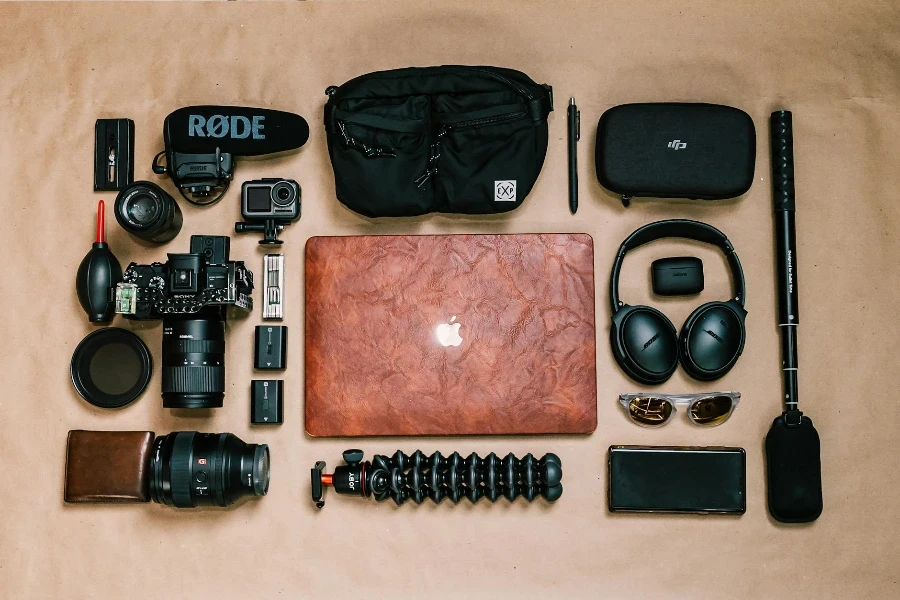In the fast-paced world of technology, laptops have become indispensable tools for both work and leisure. However, with portability comes the risk of damage. This is where a laptop case comes into play, offering protection and style for your precious device. In this guide, we’ll dive deep into everything you need to know about laptop cases, from how they work to selecting the perfect one.
Table of Contents:
– What is a laptop case?
– How does a laptop case work?
– Benefits and drawbacks of a laptop case
– How to choose a laptop case
– How to use a laptop case
What is a laptop case?

A laptop case is a protective cover or bag designed to safeguard laptops from external damage, such as scratches, dents, or the impact from falls. These cases come in various materials, including neoprene, leather, polyester, and hard plastic, each offering different levels of protection and style. The primary purpose of a laptop case is to provide a secure environment for your device, whether you’re traveling, commuting, or simply storing it at home.
Laptop cases are not only about protection; they also reflect personal style and professional demeanor. They range from sleek, minimalist designs to vibrant, patterned ones, allowing users to choose based on personal preference or professional requirements. Moreover, some cases offer additional features like waterproofing, extra pockets for accessories, or built-in stands for better ergonomics.
Understanding the construction and design of laptop cases is crucial for appreciating their protective capabilities. High-quality cases often feature padded interiors that absorb shock, durable exteriors that resist wear and tear, and secure closures to keep the laptop snugly in place. The combination of these elements ensures that the laptop remains safe from the majority of common hazards it might encounter during daily use.
How does a laptop case work?

The functionality of a laptop case hinges on its design and the materials used. At its core, a laptop case works by creating a protective barrier around the laptop, shielding it from physical damage and, in some instances, environmental factors like water or dust. The effectiveness of a case in protecting a laptop depends largely on its fit, material, and construction quality.
For instance, a snug-fitting case made of high-density foam offers excellent shock absorption, reducing the risk of internal damage to the laptop if dropped. Hardshell cases, on the other hand, provide a rigid barrier against impacts and crushing forces, making them ideal for travel or crowded environments where the laptop might be subjected to more rigorous conditions.
Moreover, some laptop cases are designed with water-resistant or waterproof materials, adding an extra layer of protection against spills or rain. This feature is particularly beneficial for users who frequently work in different locations or have to commute in varying weather conditions. The combination of material properties and design features dictates how well a laptop case can protect against specific types of hazards.
Benefits and drawbacks of a laptop case

The primary benefit of using a laptop case is the enhanced protection it offers. By safeguarding the device against physical damage and environmental factors, a case can significantly extend the lifespan of a laptop. This protection is especially important for users who travel frequently or use their laptops in high-risk environments. Additionally, the variety of designs and materials available allows users to express their personal style while ensuring their device remains secure.
However, there are also drawbacks to consider. Some laptop cases can be bulky, adding extra weight and reducing the laptop’s portability. This can be a significant inconvenience for those who value lightweight travel or have limited storage space. Furthermore, high-quality cases can be expensive, representing an additional investment on top of the laptop itself.
Another consideration is the potential for overheating. Cases that do not allow for adequate ventilation can cause the laptop to overheat, potentially damaging the device and affecting its performance. It’s crucial to choose a case that balances protection with proper airflow to avoid this issue.
How to choose a laptop case

Selecting the right laptop case involves considering several factors, including the size of your laptop, the level of protection needed, and personal style preferences. Start by measuring your laptop to ensure the case you choose will fit snugly; a case that’s too large won’t provide adequate protection, while one that’s too small won’t fit at all.
Next, assess the environments in which you’ll be using your laptop. If you’re frequently outdoors or in situations where your laptop could be exposed to water, consider a waterproof or water-resistant case. For those who travel often, a hardshell case might offer the best protection against impacts and pressure.
Finally, don’t forget to factor in your personal style and any additional features you might find useful, such as extra pockets for accessories or straps for easy carrying. While aesthetics should not be the primary concern, choosing a case that reflects your personal style can make carrying your laptop a more enjoyable experience.
How to use a laptop case

Using a laptop case effectively is straightforward but requires attention to detail. First, ensure that the case fits your laptop correctly; it should be snug but not so tight that it’s difficult to remove the device. When placing your laptop into the case, do so gently to avoid any unnecessary strain on the laptop or the case.
If your case comes with additional storage options, like pockets or compartments, use them to organize your accessories, such as chargers, mice, or external hard drives. However, be careful not to overstuff these compartments, as excessive pressure on the laptop can cause damage.
Regularly inspect your laptop case for signs of wear and tear, especially if it’s made of softer materials that might degrade over time. Promptly replacing a worn-out case can prevent sudden failures that leave your laptop unprotected.
Conclusion
A laptop case is an essential accessory for anyone looking to protect their device from the rigors of daily use. By understanding how laptop cases work and the benefits they offer, you can make an informed decision when choosing the right case for your needs. Remember to consider the size of your laptop, the level of protection required, and your personal style when making your selection. With the right laptop case, you can keep your device safe, secure, and stylish wherever you go.



